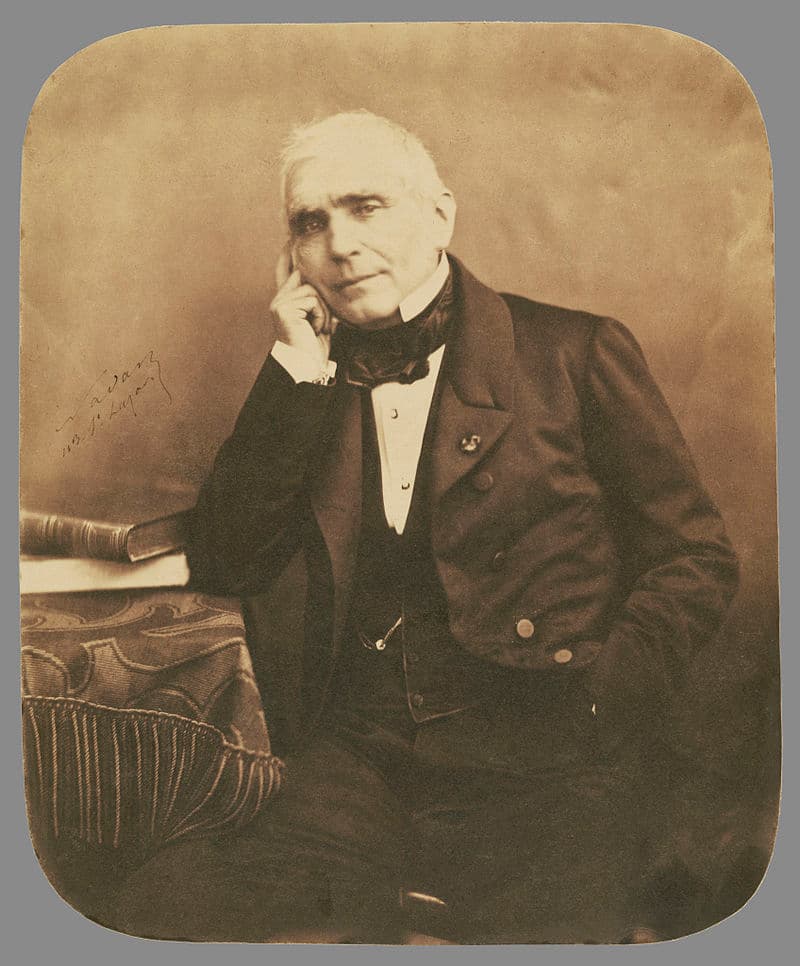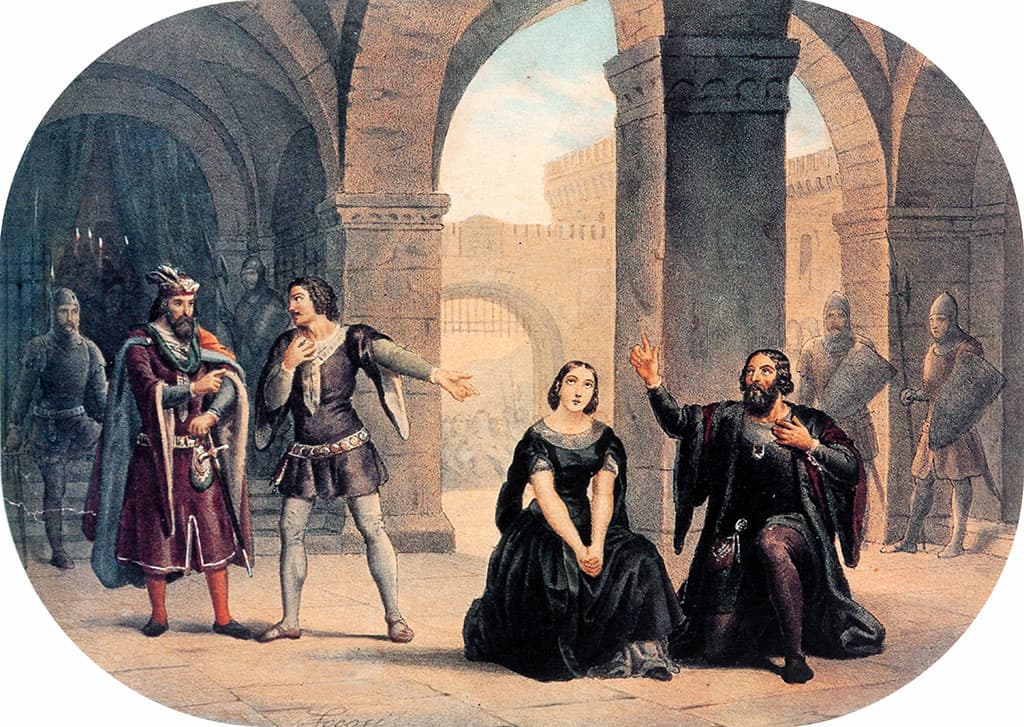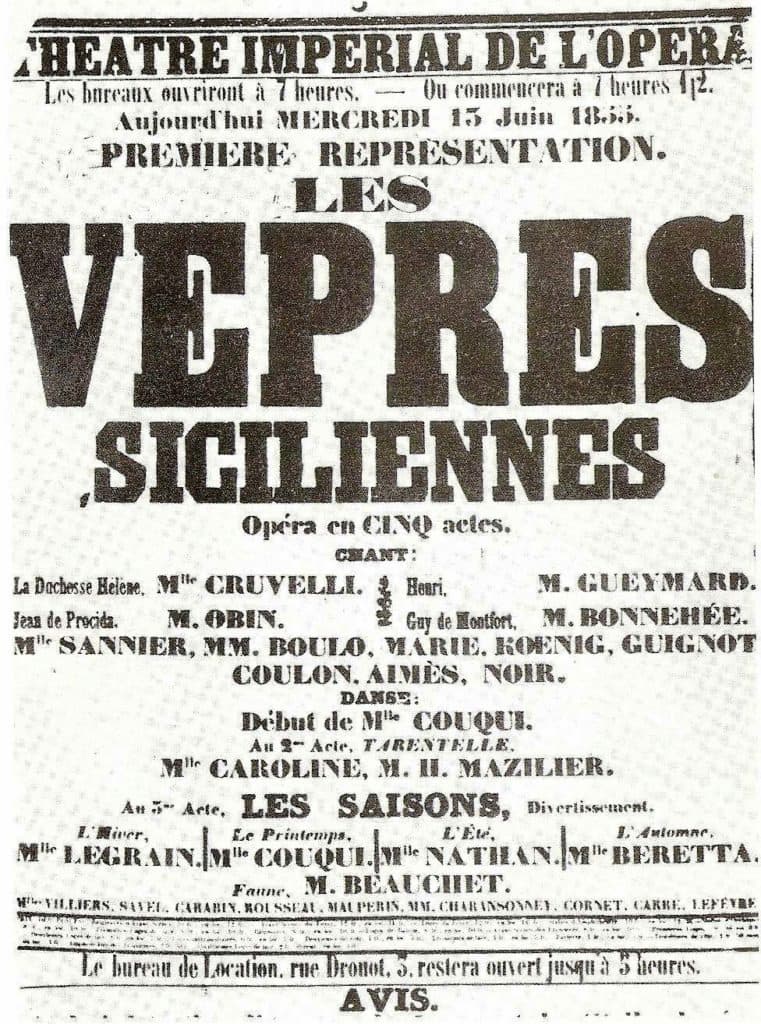Giuseppe Verdi’s Les vêpres siciliennes premiered at the Paris Opéra on 13 June 1855. It was well received, and even the notoriously difficult Hector Berlioz found much to admire, praising “the penetrating intensity of the melodic expressiveness, the sumptuous, wise variety of the instrumentation, the vastness and poetic sonority of the concerted pieces, the hot color that shines throughout… communicate to this opera an imprint of grandeur, a species of sovereign majesty more distinguishable than in this composer’s earlier products.”

Giuseppe Verdi, 1859
As with almost all French grand operas, however, the work completely disappeared from the repertoire. For one, the sheer length and the complexity of its vocal and scenic demands placed severe pressure on opera economics. However, as Roger Parker writes, “there may be purely musical reasons for this comparative neglect. With very few exceptions, its main lyrical numbers lack the melodic immediacy of the trio of Italian operas Rigoletto, Il trovatore, and La traviata that immediately preceded it.”
Giuseppe Verdi’s Les vêpres siciliennes, “Overture”
Verdi had been looking to produce an opera for Paris, but the revolutions of 1848 delayed the project for a number of years. Finally, in 1852 a contract was drawn up for a full-scale French grand opera in five acts, “with a libretto by Eugène Scribe, the acknowledged poetic master of the genre.” Verdi told Scribe, “I should like, I need a subject that is grandiose, impassioned and original; a mise-en-scene that is imposing and overwhelming. I have consistently in view, so many of those magnificent scenes to be found in your poems… Indeed, these scenes are miracles! But you work them so often that I hope you will work one for me.”

Eugène Scribe
Various subjects were proposed and rejected, but eventually, the poet and composer agreed to use a revised version of an existing libretto. Le duc d’Albe had originally been written by Scribe and Charles Duveyrier for Halévy. Halévy was not interested, but the text was partly set to music by Donizetti in 1839. Verdi worked on the score for the better part of 1854, and even forced Scribe to provide some important revisions.
Giuseppe Verdi’s Les vêpres siciliennes, “O patria…”
The action takes place in 13th-century Sicily, with French troops controlling the area. In the town square in Palermo, soldiers are drinking and Duchess Hélène enters explaining that she is a hostage of Governor Montfort, who executed her brother one year earlier. When she is ordered to entertain the soldiers with a song, the Sicilians rally around her and advance on the French.

Design for Giuseppe Verdi’s Les vêpres siciliennes (1855) by Roberto Focosi
As the battle is about to begin, Montfort appears at the door of his palace, and together with Hélène, they explain their conflicting positions. Procida, the banished leader of the Sicilian patriots arrives in the city and urges a small band of patriots to deliver their homeland. Hélène arrives with Henri, a young admirer, and Procida tells them that Spanish forces have agreed to aid Sicily, but that they will not act unless there is a local uprising. When Henri is summoned to attend a ball given by Montfort, he refuses and is imprisoned. Meanwhile, Procida stirs up local sentiment by telling French soldiers to take advantage of the local women.
Giuseppe Verdi’s Les vêpres siciliennes, “In braccio alle dovizie (Au sein de la puissance)”
Many years earlier, Governor Montfort had a son whom he now finds to be none other than Henri. Henri is torn between his newly-found father and his love for Hélène. At the ball, Procida and Hélène tell Henri about the plot to murder Montfort, but he warns his father, and the conspirators are immediately arrested. Henri is cursed by the Sicilians, and hated by the imprisoned Hélène. Once they are reunited, Hélène declares her love and Henri realizes that the real enemy turns out to be his father. Montfort eventually pardons Henri, Hélène, and Procida, and he grants Hélène’s hand in marriage to Henri. When Montfort signals for the wedding bells to sound, the Sicilians rush in with daggers and attack Montfort and the French.

Verdi’s Les vêpres siciliennes
And while the opera has failed to gain a foothold in the repertoire, Les vêpres siciliennes is of enormous importance to Verdi’s musical development. As Parker writes, “In both strictly formal terms and in larger matters of operatic structure, it marks a decisive turn away from the language of the middle-period Italian operas and the emergence of many stylistic features we associate with the later Verdi. There is no subsequent Verdi opera in which the experience of Les vêpres will not be recalled and refined.
For more of the best in classical music, sign up for our E-Newsletter
